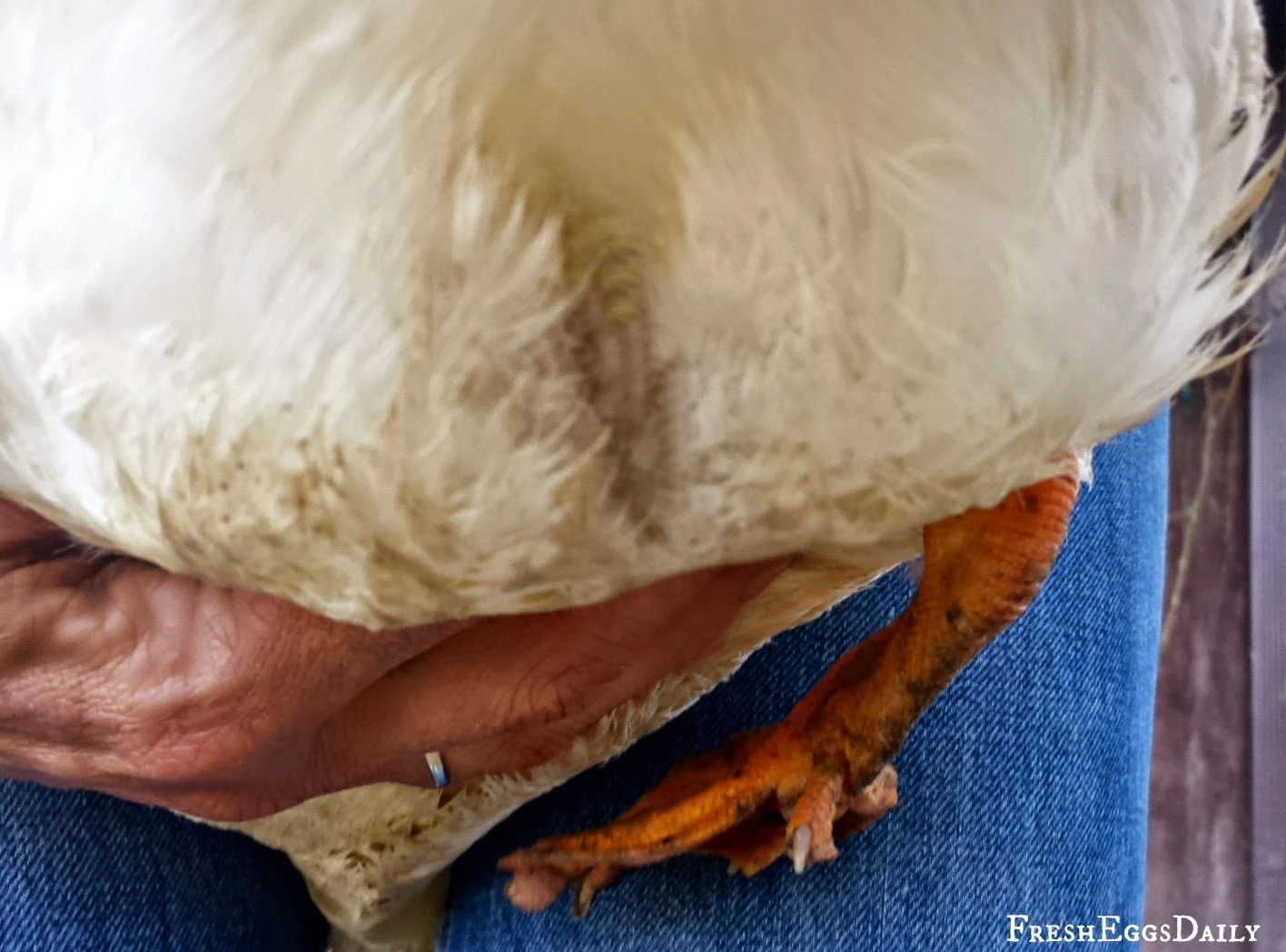Treating Vent Prolapse in Chickens and Ducks
A prolapsed vent, also sometimes called "blowout" or "blow-out" is a potentially serious condition which occurs when a portion of a hen's (chicken or duck) oviduct ends up outside her body and doesn't retract back inside.
It's likely to happen on a recurring basis after it has occurred once.
Prolapse is more common in young layers, hens being forced to lay through the winter (by using artificial light in the coop) instead of being able to adhere to a natural laying cycle, overweight hens, or hens who strain to lay extremely large (double yolk) eggs or soft-shelled eggs.
It's also more common in production breeds which are bred to lay at extraordinarily high rates. That high production can put a strain on the hen's body.
I had never treated a hen with a prolapsed vent before, but several weeks ago I noticed that one of our magpie ducks, Maggie, was suffering.
Her vent was swollen and red and part of her oviduct had clearly not retracted after she laid her egg that morning.
(Sorry I didn't get a better photo, but it's hard to hold a duck AND snap a photo of her behind at the same time!)
Treating Vent Prolapse in Chickens and Ducks
Fortunately, I knew the basics of treating a prolapsed vent (the same treatments are generally recommended for chickens or ducks) from reading about it over the years.
Conventional Treatment of Vent Prolapse in Chicken and Ducks
Carefully cleaning the prolapse with warm water and then pushing it back into place before applying (Preparation H, KY jelly or petroleum jelly or is the conventional treatment.
But if you, like me, aren't a huge fan of petroleum-based products, you might want to go the natural route instead.
Natural Treatment of Vent Prolapse in Chicken and Ducks
Not generally a fan of "conventional" or commercial treatments?
Here's a more natural treatment of vent prolapse that uses witch hazel which is a natural anti-inflammatory.
The witch hazel will help tighten the skin and vent, as well as soothe and reduce the pain and swelling.
Applying honey or sugar will help tighten the area as well.
Treatment of vent prolapse should also include:
- separating the 'patient' and keeping her in a dark, quiet location to prevent pecking by other flock members and to reduce the chances she will lay another egg (a dog crate with a blanket or towel draped over it works well).
- withholding feed for at least 24 hours but providing lots of fresh water, followed by several days of light rations of mainly greens will help prevent another egg being laid in order to give the vent time to heal.
The treatment should be repeated daily until the prolapse has healed; and the hen should be kept separate in a quiet, dark place for the duration to prevent pecking by flock members and to reduce the chance she will lay another egg.
Vigilance is mandatory to be sure the vent stays in place. (Sadly, if the condition recurs repeatedly, culling is often the humane solution.)
Natural Prevention of Vent Prolapse in Chickens and Ducks
Prevention includes:
- allowing your flock plenty of space for exercise to help them maintain good muscle tone
- healthy diet to prevent obesity
- free-choice calcium to make hard eggshells
- being given a natural break from laying through the winter for their bodies to rest
By forcing them to lay year round (by adding artificial light to your coop in the winter), you are putting an unnatural strain on their bodies.
Another good option for helping the prolapse to heal and conditioning the skin is my all-natural Fresh Eggs Daily Herbal Salve.
I keep one container in our coop first aid kit and another in the house. I love that it's natural, we can use it on all our animals - chickens, ducks, geese, and dog - and that it helps heal cuts, abrasions, and and bug bites.
It is 100% natural and not only helps keep wounds from getting infected, it helps speed healing - naturally.
So I carefully cleaned Maggie's vent with warm water, slathered her vent with salve and then applied a healthy sprinkle of sugar to help tighten and shrink the tissue.
I repeated this treatment twice a day for a couple of days and within no time, Maggie was as good as new.
She started laying eggs again shortly thereafter and hasn't had any problems since. It's been a couple of weeks now and the condition has not recurred, so I'm hopeful it was a one-time thing.
Edited to add: Maggie lived to the ripe old age of 9 years old. We just lost her in the fall of 2022 to old age.
Pin This!
Further Reading
































